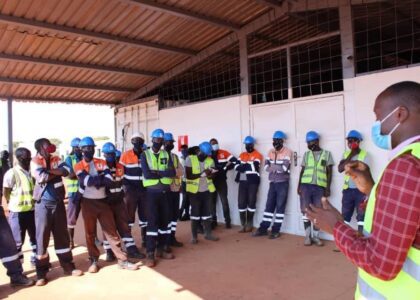Launched and approved by the first lady H.E Janet Kataha Museveni in 2018 to amongst others equip young people with information about sexuality so as to: Enable them to make healthy choices about their sexual and reproductive health, and Enable them utilize life-skills in developing values, attitudes and relationships that maximize their God-given potential. According to the UDHS 2016, teenage pregnancies are stagnating at 25%, and child marriage at 40% (UNICEF 2017).
While it is clear that the policy was approved by the Ministry of Education making it ready for implementation, issues of contention have continued to impend the rollout of the policy as a guide to creating safer learning environments for children in and out school. In furtherance of the contributing to efforts geared at ending child marriage, Joy for Children Uganda recently convened a half day meeting with a section of religious leaders, Parliamentarians and line ministries of Gender and education representatives. Whereas the meeting was aimed at lobbying and partnering with MPs in supporting the renewal and financing of strategies related to ending child marriage with focus on the Sexuality Education Framework and the National Strategy to End Child Marriage, the outcome of the meeting was that SEF still had content that was contrary to the views of most of the participants in the meeting especially religious leaders and MPs. Some of the issues of contention include but are not limited to;
- The naming of the Policy from sexuality education Framework which received sentiments from religious leader’s views on the name
- Age appropriateness at 3 years which seemed too young to stakeholders for children to comprehend this information. Note that each age category has specific content for it’s consumption.
- The doubt in capacity by MoE and teachers to deliver the content in the frame work.
- Comprehension and confusion between sexuality education and sex education all contributed to the delayed process of rolling out the policy.
It is evident that during the lockdown both child marriage and teenage pregnancy cases have heightened country wide. The recent survey by Daily Monitor sites 2,300 school girls conceived and 128 married during the lockdown in Ngora, kyegegwa, Kitgum, Rakai, kayunga, and kasese Districts. There are key issues affecting adolescents and realities on the ground including 10 -19 year HIV/AIDS increasing infection, drugs and alcohol abuse, Teenage Pregnancy not doing any better at 25%, the situation could even be worse if the Sexuality Education Framework is not rolled out. Only 24% of children in Uganda don’t experience violence (Violence against children Survey 2019). Our children are not safe if the SEF is not rolled out. In the absence of supportive families, communities and environment, children are most likely to trust anyone to thrive.
If a section of stakeholders don’t want to name the Framework as Sexuality Education Framework, the content of the framework can be disseminated to culminate the increasing cases of child marriages and Teenage pregnancies.






